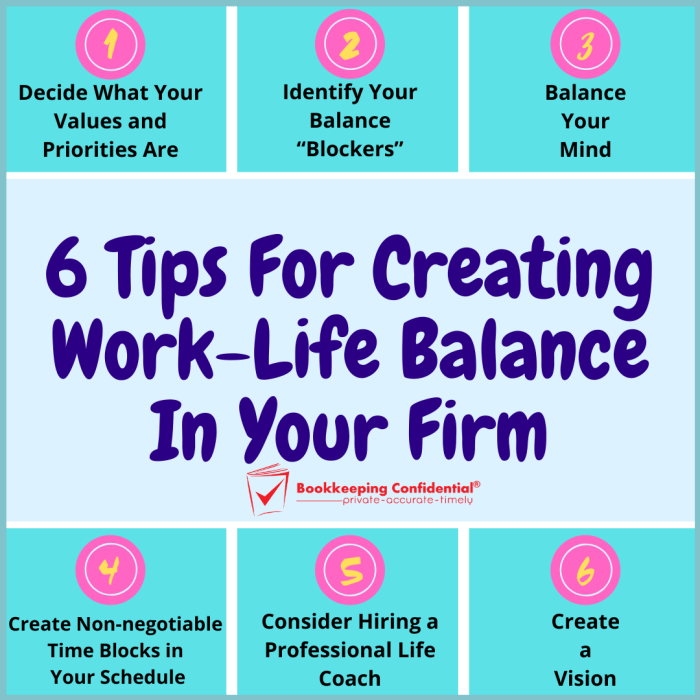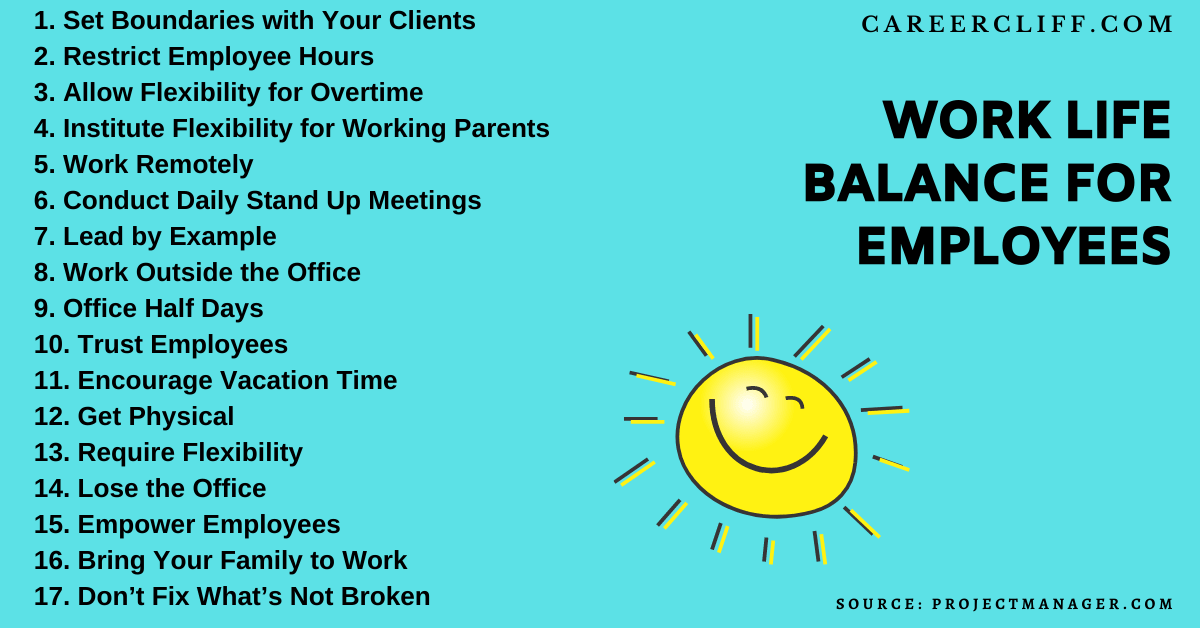Kicking off with Work-Life Balance Tips, this opening paragraph is designed to captivate and engage the readers, setting the tone american high school hip style that unfolds with each word.
Striving for that perfect balance between work and personal life is like finding the ultimate high school cheat code for success. It’s all about juggling responsibilities while still making time for yourself – the real MVP of the game of life. So, buckle up and get ready to level up your work-life balance with these killer tips.
Importance of Work-Life Balance
Work-life balance is crucial for overall well-being as it helps individuals maintain a healthy lifestyle, reduce stress, and improve productivity.
A lack of work-life balance can have a significant impact on mental health, leading to burnout, anxiety, and depression. When work consumes all aspects of life, it can strain relationships, increase fatigue, and hinder personal growth.
Benefits of Maintaining a Healthy Work-Life Balance
- Improved mental health: Balancing work and personal life can reduce stress levels and prevent burnout, leading to better overall mental well-being.
- Increased productivity: Taking time for self-care and relaxation can boost productivity at work, as individuals return refreshed and focused.
- Enhanced relationships: Spending quality time with loved ones and engaging in hobbies outside of work can strengthen relationships and create a support system.
- Better physical health: Maintaining a work-life balance allows for time to exercise, eat well, and prioritize health, leading to a healthier lifestyle.
Strategies for Achieving Work-Life Balance: Work-Life Balance Tips

Finding the right balance between work and personal life can be challenging, but with the right strategies, it is definitely achievable. Here are some tips to help you manage your time effectively, set boundaries, and prioritize tasks to avoid burnout.
Time Management Techniques
Effective time management is crucial for maintaining work-life balance. Here are some techniques to help you make the most of your time:
- Use a calendar or planner to schedule your tasks and activities.
- Prioritize your tasks based on urgency and importance.
- Avoid multitasking and focus on one task at a time.
- Set realistic deadlines for your projects to avoid last-minute stress.
Setting Boundaries, Work-Life Balance Tips
Setting boundaries between work and personal time is essential for maintaining a healthy work-life balance. Here are some tips to help you establish boundaries:
- Define specific work hours and stick to them.
- Avoid checking work emails or messages outside of work hours.
- Communicate your boundaries with your colleagues and family members.
- Create a designated workspace at home to separate work from personal life.
Prioritizing Tasks
Prioritizing tasks effectively can help you avoid burnout and stay productive. Here are some ways to prioritize your tasks:
- Identify urgent tasks that require immediate attention.
- Delegate tasks that can be handled by others to lighten your workload.
- Break down large projects into smaller tasks to make them more manageable.
- Take breaks throughout the day to recharge and avoid mental fatigue.
Healthy Work Habits
Maintaining healthy work habits is crucial for overall well-being and productivity in the workplace. By incorporating strategies to prioritize physical health during the workday, individuals can enhance their performance and focus.
Importance of Taking Breaks
Taking breaks during work hours is essential for boosting productivity and preventing burnout. Short breaks throughout the day allow the mind to rest and recharge, leading to improved concentration and creativity.
- Set a timer to remind yourself to take short breaks every hour.
- Engage in deep breathing exercises or stretching to relax your mind and body.
- Step away from your desk and go for a short walk to clear your mind.
Incorporating Physical Activity
Physical activity is key to maintaining energy levels and reducing stress at work. Finding ways to include movement in your daily routine can improve overall well-being and cognitive function.
- Take the stairs instead of the elevator whenever possible.
- Use a standing desk to alternate between sitting and standing throughout the day.
- Schedule walking meetings or brainstorming sessions to encourage movement and creativity.
Importance of Proper Nutrition and Hydration
Eating a balanced diet and staying hydrated are essential for sustaining energy levels and mental clarity during the workday. Proper nutrition fuels the body and mind, enhancing focus and productivity.
- Pack healthy snacks like fruits, nuts, and granola bars to avoid unhealthy food choices.
- Stay hydrated by drinking water consistently throughout the day.
- Avoid excessive caffeine and sugar intake, as they can lead to energy crashes and decreased productivity.
Managing Stress Levels

Feeling stressed out at work can really throw off your work-life balance. It’s important to find strategies to manage stress so you can stay healthy and focused.
Mindfulness Practices like Meditation
One great way to reduce stress is by practicing mindfulness, such as meditation. Taking a few minutes each day to clear your mind and focus on the present moment can help lower stress levels and improve your overall well-being.
Creating a Relaxing Work Environment
Another tip for managing stress is to create a relaxing work environment. This could include adding calming elements like plants, using essential oils, or playing soothing music. By making your workspace a more peaceful place, you can minimize stress levels and increase productivity.
